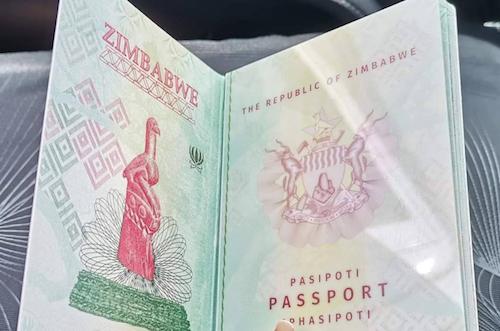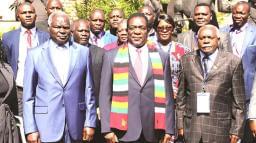With 20 e-passport centres already commissioned and with plans to ensure every district gets such a registry centre, that will offer all the other documentation that people need in the modern world, the quality of life is rising across most of Zimbabwe.
Some of the newly opened centres offering e-passports include Guruve, Murehwa, Lupane, Hwange, Beitbridge, Zvishavane, Marondera, Gweru, Bulawayo, Mazoe and Bindura.
Targeted areas which will have the facility soon include Chipinge and Mbire district which has three ports of entry – Kanyemba, Chikafa and Chidodo border posts – as the Second Republic is rolling out massive developments in the area including envisaging a town in Kanyemba.
President Mnangagwa, speaking during a star rally in Glendale last weekend, said his Government was committed to continue bringing services to the people.
“A long time ago, you used to travel from Muzarabani to faraway places to apply for vital civic documents, but now you can apply for your biometric passport here in the rural areas. The man behind this is KK (Home Affairs Minister Kazembe Kazembe), who built registry offices across the country. You no longer need to go to Harare to apply for passports. We now have more than 20 passport centres,” he said.
“We started with Murehwa in Mashonaland East to make life easier for the elderly to apply for their passports. They can be able to go to any country in the world because of the work that is being done by the Second Republic.”
Some of the beneficiaries of the decentralisation of the civil registry offices hailed the Second Republic for delivering on its promises.
Ms Faith Marimandi from Goromonzi said: “The service is impressive and the staff here is fast and efficient. This is wonderful and we are happy as people. Government has done a commendable job to bring in e-passport services to Marondera and bringing this service closer to us.”
Ms Fadzai Tsiga from Marondera said the ambience at the offices has dramatically changed following the renovations, while the issuance of e-passports has speeded up the process. “Actually, the service is now fast; we used to see long queues here with some people failing to be served even in two days.”
“Despite there being many people in front of me when I visited the passport offices, I was hurriedly served. I am impressed by this service brought to us by the President.”
Mr Schalk de Waal Viljoen, also from Marondera, said he was impressed by the whole process.
With a varied population that included immigrants from neighbouring countries coming to work on mines and farms, and their Zimbabwean-born descendants who can be legal citizens by birth, Mrs Mostafa Kina Kondo said the majority have identity documents indicating “Alien”.
“This was the dilemma of many of our people whose parents and grandparents migrated from other countries. We thank President Mnangagwa who has lessened the requirements for such people to obtain identity documents,” she said.
“It was a nightmare for people here to obtain a passport and worse for those in the periphery areas like Kanyemba and Mukumbura. One would plan the journey and sometimes go back several times. We thank the Government for delivering its promises to the people. This means that the majority of our people will obtain passports and cross the borders in search of indigenisation.”
Mrs Esnath Kanyange managed to renew her passport and said the process was efficient.
“It is a walking distance from home to get to the passport office. This was unheard of because before, getting a passport was an antagonising task,” she said.
Home Affairs and Cultural Heritage Minister Kazembe Kazembe said the Government has been making a deliberate approach to bring services to the people.
“The cascading of e-passports to the district is a result of increasing demand for travel documents. Citizens continue to transverse international borders in pursuit of new opportunities,” he said.
“Over the years passport issuance was restricted to 10 provincial officers and this resulted in congestion. In response, the Government took a deliberate stance to improve service delivery through decentralisation of e-passports.”
Registrar General Mr Henry Machiri said civil registration provides the most reliable source of data and is central to the country’s developmental process.
He said the decentralisation drive is a way of bringing services to the people and improving accessibility.
“We aim to leave no one and no place behind in line with the President’s mantra. We are promoting ease of doing business as we move towards the realisation of Vision 2030. I urge people to travel with valid travelling documents and desist from border jumping,” said the Registrar General.
Source – The Herald












